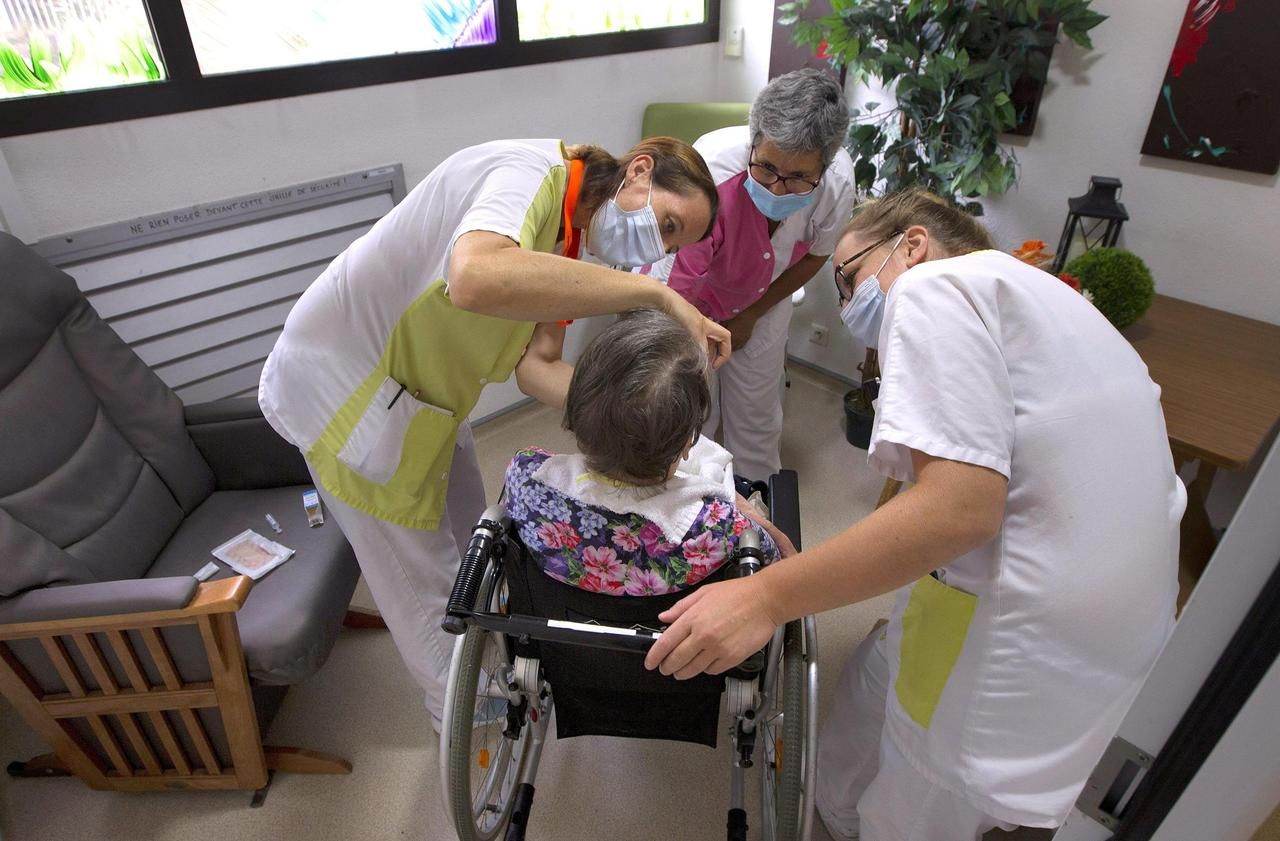Be careful, confusion or agitation can be the first signs of Covid-19, especially in older people.
Mr. B, 85 years old, suddenly began to be confused, to no longer recognize his relatives ... Those around him fear a stroke, like the doctor called in urgently.
It is in the hospital, during a systematic test, that the diagnosis of Covid-19 is made.
The scanner then discovers massive pulmonary involvement, but without fever and without respiratory signs.
A few months ago, researchers realized that the coronavirus could induce neurological disorders.
This week, German doctors at the Charité Hospital in Berlin discovered that the virus was infecting the brain, presumably traveling up the olfactory nerves.
They published their results in the journal Nature Neuroscience.
Doctors until now believed that these disorders were caused by a decrease in oxygen in the brain.
According to a study published in the journal Neurology a few weeks ago, one in seven people hospitalized for Covid would have neurological disorders.
Faced with confusion, signs of pseudo-stroke, loss of speech, sudden alterations in walking, in these times of pandemic we must always include the Covid-19 test in the balance sheet.
A sign of impact on the brain
Chinese researchers observed from the start of the epidemic that disturbances in consciousness were a sign of Covid-19.
In the United States, the center for disease control (CDC) specifies in the section "Symptoms of the Coronavirus" that the sudden onset of confusion, even without cough or fever, must immediately evoke the disease.
These disorders most often concern the elderly.
But in one in three people with Covid-19, minor neurological disturbances such as loss of smell or taste, headaches or even dizziness occur.
These symptoms - admittedly mild and not serious - reflect the impact of the virus on the brain.
To understand these disorders, German researchers examined the brains of 33 patients (with an average age of 72 years) who died from Covid-19 under an electron microscope.
They observed intact particles of coronavirus inside the olfactory lining.
"Our data suggest that the virus travels from a nerve cell to a nerve cell to reach the brain," says Dr Radbruch, of the Department of Neuropathology at Charité in Berlin.
“It is likely, however, that the virus is also transported via blood vessels, as evidence of the virus has also been found in the walls of blood vessels in the brain.
"
Researchers have also identified the virus in areas of the brain that control vital functions, such as breathing.
Little by little, the strategies of the virus are revealed, opening up new perspectives to better fight it.









